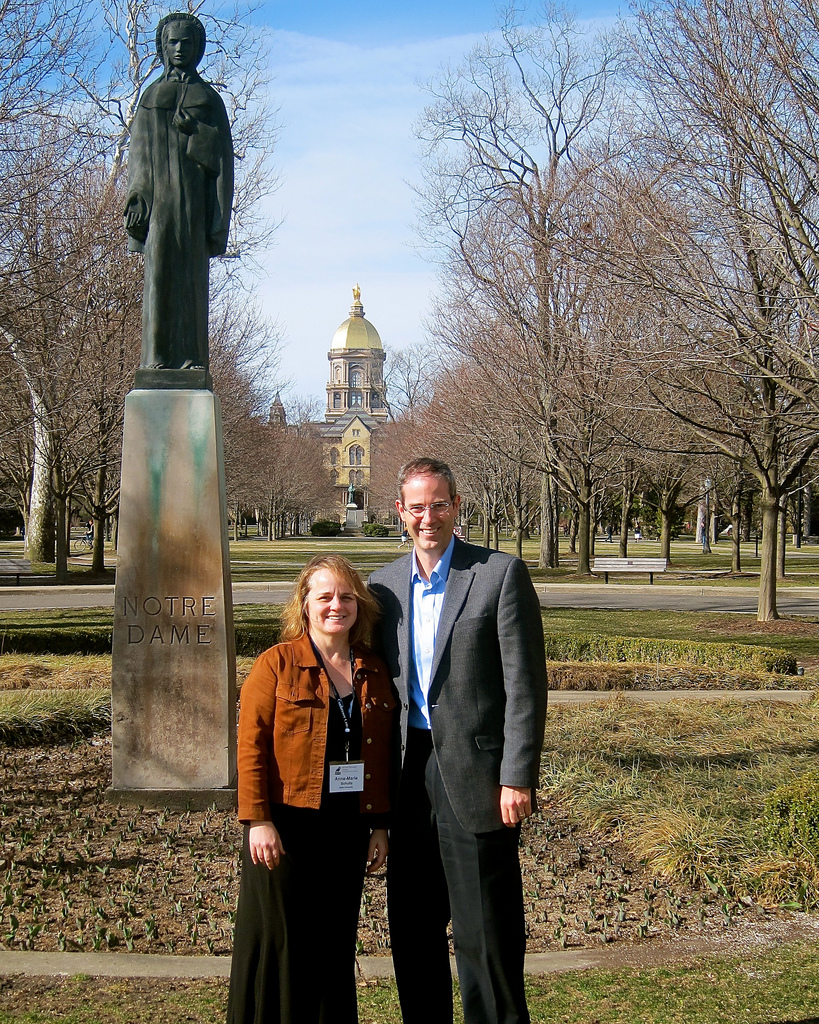
Anne-Marie Schultz, Associate Professor of Philosophy and Director of the Baylor Interdisciplinary Core at Baylor University, joins me at the 13th annual meeting of the Ancient Philosophy Society She is author of many articles in Ancient Greek Philosophy and on Plato specifically, including most recently:
- “The Narrative Frame of Plato’s Euthydemus,” Southwest Philosophy Review 24 (2009):163- 172;
- “You Are What You Read: Reading the Books of Augustine’s Confessions,” Augustinian Studies 39 (2008): 101-112; and
- “Socratic Reason and Emotion: Revisiting the Intellectualist Socrates in Plato’s Protagoras,” in Socrates: Reason or Unreason as the Foundation of European Identity, ed. Ann Ward (Cambridge: Cambridge Scholars Press, 2007): 1-29.
She has recently completed an excellent book, entitled, Plato’s Socrates as Narrator: A Philosophical Muse, to appear with Lexington Books any day now.
Anne-Marie is on the Digital Dialogue to discuss the paper she delivered at #APS13: “The Narratve Frame of Plato’s Lysis: Toward a Critique of Socratic Intellectualism.”
Digital Dialogue 60: Anne-Marie Schultz on Socratic Narration
To subscribe to the Digital Dialogue through iTunesU, click here.


it was intriguing to hear that there is still a need to overcome the west's heritage of both the persian dualism and the enlightenment's efforts to reconcile the world understood as mechanical with the biological functions of living, sensing and knowing. perhaps professor schultz's theme discussed here is a reminder of the importance of knowing the greek ways of thinking in reading the greek texts – the so called "unconscious presuppositions of language." it has been widely remarked that the greeks saw two processes in the world – the processes that exist by nature and those that exists by art, with the former having an internal principle of change, as in a drive to achieve the characteristic form of being for everything that exists by nature. thus it is difficult to imagine the greeks not taking the life of instinct, emotion and social passion seriously. but perfecting or completing of self-awareness involves bringing the life of instinct etc (or the subjective self) within the illuminating sphere of knowledge and intellectual understanding. although as is said of the greeks that in practice or conduct reason is in the service of desire, there is a danger in the modern emphasis on emotions – it carries the danger of making reason a mere slave of passion. it was not clear in professor shultz's comments if she was seeking support in her reading of plato for what is commonly told today, "trust your heart not your mind." thanks to professor long's polite but incisive comments and questions in the dialogue, all this was brought to the fore for this hearer